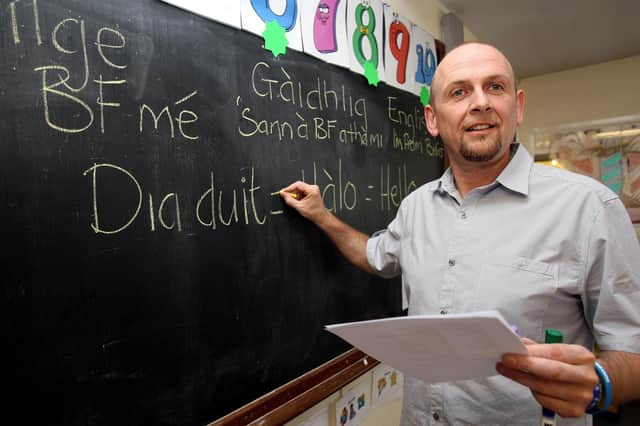Gaelic: Giving BBC Alba the same status as S4C, the Welsh service, would help the language survive – Professor Robert Dunbar


We now have a service, BBC Alba, which plays a key role in our ongoing effort to support Gaelic. It has showcased the diversity and vibrancy of Gaelic culture, its ongoing relevance in contemporary Scotland. It supports the growing numbers who are learning the language, and is a source of pride to Gaelic speakers.
It has also created good employment for those with Gaelic language skills, not least in the Western Isles and Skye, where 160 of the 340 full-time-equivalent jobs in Gaelic broadcasting are based. Such investment makes a significant contribution to regional development, and to efforts to maintain the language in its remaining heartland communities.
Advertisement
Hide AdAdvertisement
Hide AdWhat’s more, BBC Alba is popular with Gaelic-speakers and wider public, providing real value to all of its audiences. The service is now widely recognised as a key element in Scotland’s broadcasting ecology.
However, BBC Alba has been built in piecemeal fashion, without ever being guided by a strategic vision for the future. This has resulted in many gaps and weaknesses which have already limited the development of the service. With the prospect of new broadcasting legislation at Westminster on the horizon, the time to address these issues has come.
First, legislation should give a statutory basis to the service. At present, broadcasting legislation makes reference to and creates some obligations for MG Alba, one of the partners in the service. However, it contains no reference to the service itself. Such statutory recognition would cement the arrangements under which BBC Alba operates.
Second, the service should be given public service broadcaster (PSB) status, like other BBC services, ITV and Scottish, Channel 4, Channel 5, and S4C, the Welsh service. Such recognition is essential, giving the service prominence in an increasingly congested digital world, and ensuring accessible Gaelic content that continues to educate, inform and entertain.
Third, legislation should define clearly the core funding of the service, set at a sufficient level that accords with its PSB status and enables it to broadcast significantly higher amounts of new programming. This core funding should also be inflation-adjusted. This would bring the service in line with S4C.
Fourth, legislation should specify the role of the BBC in the service, and should clarify the regulatory framework for the service, and in particular the oversight role of Ofcom.
Taken together, such legislative measures would help to address the limitations of the existing framework for Gaelic digital television broadcasting. They would provide much greater clarity and stability, facilitating longer-term planning by the service itself and by the industry it supports, including the independent television production industry in Scotland. Such stability is enjoyed by our Celtic cousins in Wales, and it is only fair that Gaelic should be in a similar position.
All parties in the Scottish Parliament are committed to the maintenance and continued revitalisation of Gaelic, and there is now wide recognition in Scotland of the importance to the nation of the language, its speakers, and its rich culture.
Advertisement
Hide AdAdvertisement
Hide AdThe UK Government shares this commitment. In 2001 it signed up to an important international treaty, the European Charter for Regional or Minority Languages, which requires the UK to take resolute action to promote Gaelic in order to safeguard it.
By taking the legislative measures outlined here, the UK will not only be fulfilling this commitment, it will be laying the foundation for the creation of a Gaelic media service that is fit for the future, creating jobs, growing the language, supporting a new generation of media entrepreneurs, and helping Gaelic communities to tell their stories to the world.
Professor Robert Dunbar, Celtic & Scottish studies, the University of Edinburgh
A message from the Editor:
Thank you for reading this article. We're more reliant on your support than ever as the shift in consumer habits brought about by coronavirus impacts our advertisers.
If you haven't already, please consider supporting our trusted, fact-checked journalism by taking out a digital subscription.
Comments
Want to join the conversation? Please or to comment on this article.
